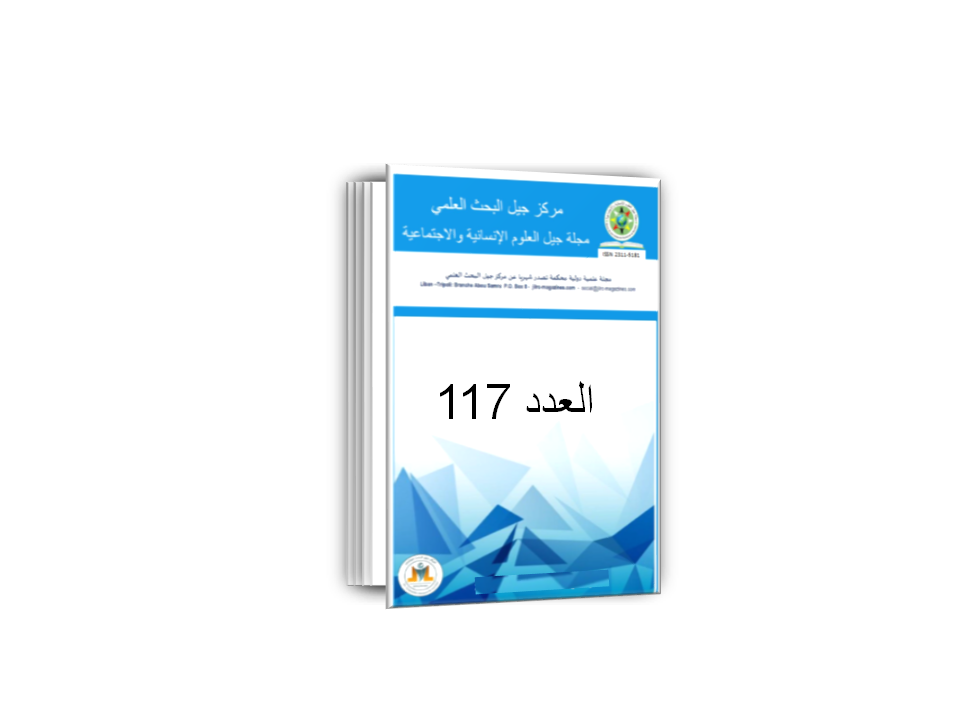
Intellectual Deviation in the Age of Globalization: An Analytical Study of Its Causes, Effects, and Remedies in Light of the Maqasid al-Shariah al-Islamiyyah
الانحراف الفكري في عصر العولمة: دراسة تحليلية لأسبابه وآثاره وسبل معالجته في ضوء مقاصد الشريعة الإسلامية
Abdullah Hemmat (Assistant Professor and PhD Researcher in Islamic Thought and Civilization, International Islamic University Malaysia, IIUM)
أ.م. د.عبد الله همت (باحث دكتوراه في الفكر والحضارة الإسلامية – الجامعة الإسلامية العالمية، ماليزيا)
مقال منشور في مجلة جيل العلوم الإنسانية والاجتماعية العدد 117، الصفحة 95.
مستخلص:
في عصر الترابط العالمي غير المسبوق، تواجه المجتمعات الإسلامية تحديات متزايدة تهدد سلامتها الفكرية والروحية. تتناول هذه الدراسة ظاهرة الانحراف الفكري-أي الانجراف نحو الفكر المتطرف أو البدعي أو غير المؤسس أخلاقيًا-بوصفها تهديدًا خطيرًا في عصر العولمة، وتستعرض أسبابه وآثاره وسبل معالجته من خلال منظور مقاصد الشريعة الإسلامية. وتضع الدراسة الانحراف الفكري في مقابل “الأمن الفكري، وهو مفهوم مستند إلى القرآن الكريم والسنة النبوية الشريفة، يهدف إلى صون سلامة التفكير والفهم الديني الأصيل.
تُبرز الدراسة كيف أسهمت قوى العولمة-من الإعلام الرقمي والتجانس الثقافي إلى المظالم الاجتماعية والسياسية- في تفاقم قابلية المجتمعات لتبني الأفكار المنحرفة، كما تحلل الأسباب الكامنة وراء الانحراف الفكري، بما في ذلك الفجوات التعليمية، والتحريفات الأيديولوجية، وأزمات الهوية، وتوضح آثاره على الأفراد والمجتمعات والأمن الوطني.
وتركز الدراسة بشكل خاص على سبل العلاج العملية، عبر مبادرات تعليمية وسياسات مستوحاة من إطار المقاصد الشرعية، مع التركيز على المملكة العربية السعودية كنموذج رئيسي إلى جانب مقارنات مختصرة مع جهود ماليزيا في مكافحة التطرف وتستعرض جهود المملكة المتعددة الجوانب- مثل إصلاح المناهج، وبرامج تعزيز الأمن الفكري، ومراكز مكافحة التطرف مثل مركز “اعتدال”، والتعاونات الدولية- وتنظر في مدى اتساقها مع مقاصد حفظ الدين وحفظ العقل.
وتخلص الدراسة إلى أن حماية السلامة الفكرية في عالم معولم تتطلب مقاربة شمولية تجمع بين الحكمة الإسلامية الكلاسيكية والاستراتيجيات المعاصرة. كما تقدم توصيات تؤكد على ضرورة دمج مبادئ مقاصد الشريعة في صياغة السياسات والمناهج التعليمية لتعزيز صمود الفكر الإسلامي أمام مظاهر الانحراف.
الكلمات المفتاحية: الانحراف الفكري؛ الأمن الفكري؛ العولمة؛ مقاصد الشريعة؛ المملكة العربية السعودية؛ التطرف؛ سبل المعالجة.
Abstract:
In an age of unprecedented global interconnectedness, Muslim societies face intensified challenges to their intellectual and spiritual integrity. This paper examines intellectual deviation—the drift toward extremist, heretical, or morally ungrounded thought—as a critical threat in the era of globalization and explores its causes, impacts, and remedies through the lens of Maqāṣid al-Sharī‘ah al-Islāmiyyah (the higher objectives of Islamic law). It situates intellectual deviation as the antithesis of “intellectual security”, a concept grounded in the Qur’an and Prophetic tradition that aims to preserve sound reasoning and authentic religious understanding.
The study identifies how globalization’s forces-from digital media and cultural homogenization to socio-political grievances-have exacerbated vulnerabilities to deviant ideologies. It analyzes the causes of intellectual deviation, including educational gaps, ideological distortions, and identity crises, and delineates the effects on individuals, communities, and national security.
Special emphasis is given to practical remedies: educational and policy initiatives inspired by the Maqāṣid framework, with the Kingdom of Saudi Arabia as a primary model, supplemented by comparative insights from Malaysia’s counter-extremism strategies. Saudi Arabia’s multi-faceted efforts-curricular reforms, state-sponsored intellectual security programs, counter-extremism centers like Etidal (Global Center for Combating Extremist Ideology), and international collaborations- if they are critically examined for their alignment with the objectives of preserving faith and intellect.
The paper concludes that safeguarding intellectual integrity in a globalized world requires a holistic approach that blends classical Islamic wisdom with contemporary strategies. It ends with recommendations stressing the integration of Maqāṣid al-Sharī‘ah principles into policymaking and educational frameworks to fortify Muslim intellectual resilience against deviation.
Keywords: Intellectual Deviation; Intellectual Security; Globalization; Maqāṣid al-Sharī‘ah; Saudi Arabia; Extremism; Remedies.
